Monday, October 21, 2024, 2:35pm – 4:05pm CDT
The panel discussion on "Low-Carbon Fuel for Engines" will bring together leading experts from industry, academia, and national labs to explore innovative solutions for reducing life-cycle carbon emissions in transportation. This panel will explore the latest advancements in low-carbon fuel technologies, such as biofuels, hydrogen, synthetic fuels, SAF, etc. Panelists will discuss the challenges and opportunities associated with scaling up these technologies and addressing infrastructure, economic, and regulatory hurdles. The panel aims to foster a collaborative dialogue on how to fairly evaluate different fuels from life-cycle perspective, how to accelerate the transition to sustainable fuel alternatives, ensuring a cleaner and more resilient future for transportation. Attendees will gain insights into cutting-edge research, practical implementations, and policy frameworks that support the adoption of low-carbon fuels. This discussion promises to be a vital exchange of ideas and strategies for driving forward the decarbonization of engines and achieving global climate goals.
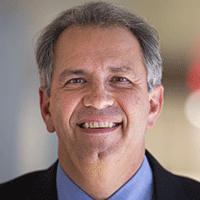
MODERATOR
André Boehman, Ph.D.
Professor, Mechanical Engineering
Vennema Professor of Engineering
Director, W.E.Lay Automotive Laboratory
University of Michigan – Ann Arbor
André Boehman is a Professor of Mechanical Engineering and the Vennema Professor of Engineering at the University of Michigan. He joined U-M in 2012 after serving for 18 years at Penn State as a Professor of Fuel Science. At U-M, Prof. Boehman serves as the Director of the Walter E. Lay Automotive Laboratory. He holds degrees in Mechanical Engineering: a BS from the University of Dayton (1986) and an MS (1987) and PhD (1993) from Stanford University. He served as the Editor in Chief of the journal Fuel Processing Technology from 2007-2011, and as an Associate Editor for Energy & Fuels from 2016-2019. He is a Fellow of the Society of Automotive Engineers, the American Chemical Society, the American Society of Mechanical Engineers and the Combustion Institute. He received the 2009 John Johnson Award for Outstanding Research in Diesel Engines and the 2009 Arch T. Colwell Merit Award from the Society of Automotive Engineers. He received the 2018 Achievement Award from the U-M Mechanical Engineering Department and both the 2021 Monroe-Brown Foundation Service Excellence Award and 2023 David E. Liddle Research Excellence Award from the U-M College of Engineering. He also received the 2020 ASME Internal Combustion Engine Award. He has authored or co-authored 136 journal publications and 6 book chapters. He has chaired or co-chaired more than 30 MS theses and 30 doctoral theses at Penn State and Michigan.
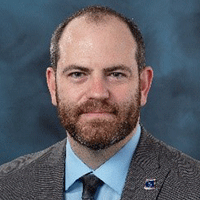
PANELIST
Scott Curran, Ph.D.
Oak Ridge National Laboratory
Dr. Scott Curran leads the Fuel Science and Engine Technologies Research Group at Oak Ridge National Laboratory. His research areas include advanced compression ignition experimental research including the development of advanced combustion concepts and investigating the fuel effects on advanced combustion modes. He is involved with low-lifecycle carbon fuels research for transportation with a focus on utilizing low-lifecycle carbon fuels for the off-road, rail and marine sectors and works on biomass resource analysis projects with a focus on biofuel end-use utilization for transportation. He is a fellow of the American Society of Mechanical Engineers (ASME) and serves on the executive committee for the ASME Internal Combustion Engine Division and is also a fellow of SAE International.
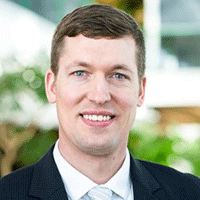
PANELIST
Christopher P. Kolodziej, Ph.D.
Principal Energy Systems Analyst
Argonne National Laboratory
Dr. Christopher Kolodziej is a Principal Energy Systems Analyst at Argonne National Laboratory. He is principal investigator of several decarbonization projects of on-road transportation, off-road equipment, and the maritime sector on a life cycle analysis (LCA) basis, primarily using Argonne's GREET model. He is co-authoring the US interagency decarbonization Action Plans for the maritime and off-road sectors. He is a US representative in the IEA Advanced Materials for Transportation (AMT) TCP and provides expertise on maritime LCA for the US delegation to the International Maritime Organization (IMO) and Great Lakes Green Shipping Corridor.
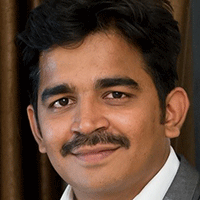
PANELIST
Kesavan Ramakrishnan, Ph.D.
Senior System Architect
Cummins Inc
Dr. Kesavan Ramakrishnan, who is a senior system architect at Cummins R&T, works on planning powertrain electrification, certification, and fleet decarbonization. He has been working on life cycle analysis of various powertrains intended for heavy duty applications. Cummins is committed to its Destination Zero strategy through sustainable solutions while helping its customers successfully navigate the energy transition with its broad portfolio of products.
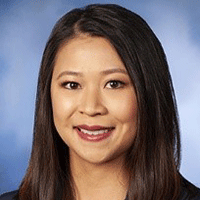
PANELIST
Diep Vu, Ph.D.
Senior Environmental Engineer
Marathon Petroleum Company
Diep Vu is an engineer in Marathon Petroleum Company's (MPC) Greenhouse Gas and Climate Strategy team. She works on key components of MPC’s climate related sustainability initiatives, encompassing corporate GHG emissions accounting, annual climate reports aligned to industry standards and life cycle analysis related matters. Prior to joining MPC, she worked in R&D focusing on air quality/climate, emissions and fuels related research.
Panel Organizers:
Xin He, Yuanjiang Pei (Aramco Americas)
Sibendu Som (Argonne National Laboratory)
Kelly Senecal (Convergent Science)